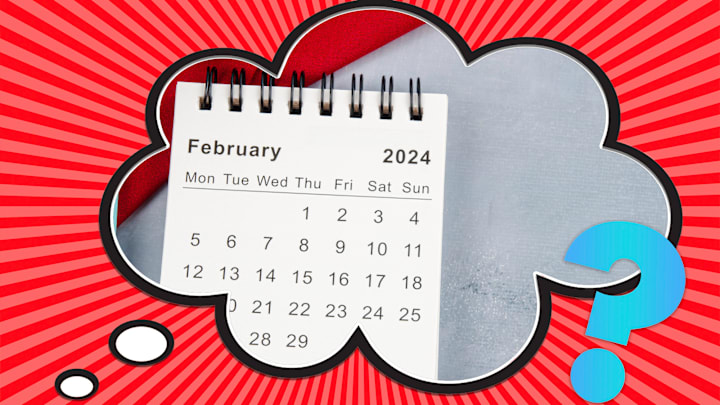February is just one of many weirdly spelled words that the English language has to offer. For this one in particular—like the other 11 more intuitively spelled month names—we have Latin to thank.
In ancient Rome, the month of February was known as Februarius, a term that has to do with purification. Februare is Latin for “to purify,” and februum describes a means of purification or an instrument used to purify. In short, February was the month of purification.
Why this was the case likely involves Lupercalia, a rather wild ancient festival that took place on February 15 and featured sacrifices, whippings, and possible nudity (or, at the very least, less clothing than people would wear on a normal day). Though we don’t know exactly what Lupercalia was for, historical accounts suggest it had to do with stimulating pastoral prosperity and fertility through purification rituals.
According to Ovid’s poem Fasti, pretty much anything that people used to purify something else was known as februa (the plural form of februum). Houses were purified with “roasted grain and salt,” land was purified with strips of animal hide, priests wore crowns made of leaves from trees, and so on.

But the path from the Latin Februarius to our modern English February does contain a detour. Around 1200, Middle English speakers were calling the month Feverer, Feverell, and other alternate spellings that all came from the Old French Feverier. While those words persisted for several more centuries, Latin-inspired iterations of the month—like Februere and Februari—started cropping up during the late 14th century. This reflected a larger trend toward Latin loanwords that was sweeping the English language at the time, and in February’s case, the Latin versions eventually replaced the French ones.
As for why we don’t bother pronouncing the first r in February, you can chalk it up to linguistic laziness. Basically, we have a tough time enunciating two r’s near each other, so we sometimes just drop one. It’s the same reason you might tend to say “suh-prise” instead of surprise and “gov-uh-nor” instead of governor.
Have you got a Big Question you’d like us to answer? If so, let us know by emailing us atbigquestions@mentalfloss.com.
A version of this story was originally published in 2022 and has been updated for 2024.
